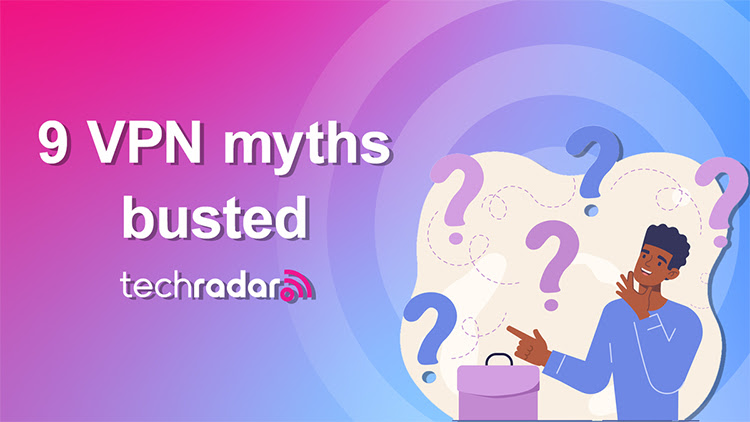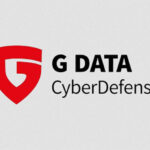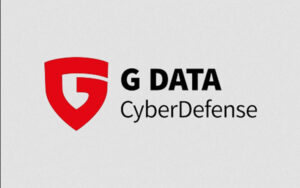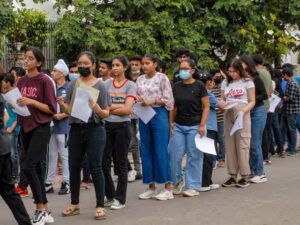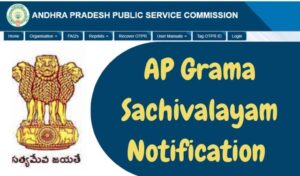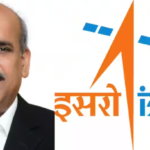Top 9 VPN myths: Virtual private networks (VPNs) are gaining popularity as a tool to safeguard user privacy. However, misconceptions and myths about VPNs have also increased with their widespread usage. It can be difficult to distinguish between fact and fiction, but experts who have studied VPNs for several years can help dispel some of the most common VPN myths. Whether you’re looking for a reliable VPN service or new to the world of VPNs, it’s crucial to debunk these nine prevalent VPN myths to make informed choices.Some of the most common VPN myths include claims that they reduce internet speed, are too complex to use, or are only useful for accessing blocked content. In reality, these statements are unfounded and do not reflect how VPNs work in practice.
A VPN’s encryption process may cause a slight drop in internet speed, but this is negligible and often unnoticed by users. Additionally, modern VPN services are designed with an easy-to-use interface, making them accessible even to non-technical users. Finally, while accessing blocked content is one benefit of using a VPN, it is far from its sole purpose. A good quality VPN service provides enhanced security features such as end-to-end encryption that prevent hackers and other malicious actors from intercepting your online data.It’s important to note that not all VPNs are created equal; therefore, it is essential to research before investing in a particular service provider. The best way forward is to assess your requirements carefully and select a reputable provider that offers features that meet your specific needs.
Outlines Of Guide
Toggle1. I don’t have anything to hide
The need for a VPN to conceal browsing activity is not limited to visiting dodgy sites or engaging in risky behavior. Everyone has the right to digital privacy, regardless of their online activities, whether it’s checking the weather or scrolling through social media. By using a VPN, you can protect your online identity and keep your browsing history private. This can prevent cybercriminals from stealing personal information, government agencies from monitoring your activity, and advertisers from tracking your online behavior. The use of a VPN ensures that your internet service provider cannot monitor or block your access to any website, giving you complete control over your online experience. Moreover, using a VPN can also enhance the speed and reliability of your internet connection by avoiding ISP throttling and reducing latency. In short, using a VPN is essential for maintaining digital privacy and security in today’s world.
In today’s digital age, our personal data has become a valuable commodity for advertisers and brokers. They use it to create a detailed profile of our online behavior and serve us personalized ads. Brokers collect this data to sell it for financial gain, often without our knowledge or consent. However, using a VPN can help prevent your browsing habits from being exploited in this way. By encrypting your internet traffic and masking your IP address, a VPN can provide an additional layer of security and privacy, helping you take control of your online identity. With a VPN, you can surf the web without worrying about who is tracking your every move or profiting from your data.
2. VPNs are for doing illegal things
Certainly, there are individuals who may misuse a VPN’s encryption for illegal activities such as torrenting copyrighted content, sending spam, and carrying out hacking attacks. It goes without saying that I do not support any of these actions, and there are numerous legal uses for a VPN. For a comprehensive understanding, I recommend referring to my beginner-friendly guide on how VPNs operate. Additionally, it’s important to note that a VPN safeguards your browsing history from being viewed and recorded by your internet service provider, which is relevant for everyone’s right to privacy, regardless of their online activities.
In countries where oppressive regimes impose censorship and restrict access to social media platforms, news sources, and parts of the internet, using a VPN becomes critical. A reliable VPN is one of the few options available for people to communicate with their loved ones, participate in safe discussions about global events, and freely browse the web. Unfortunately, many people underestimate the importance of VPNs and overlook them entirely. However, for those living under such conditions, a VPN can be a lifeline that opens up a world of possibilities that would otherwise be inaccessible. Not only does it provide access to blocked content, but it also ensures privacy and security while online by encrypting data and preventing it from falling into the wrong hands. As such, investing in a reputable VPN is a small price to pay for those who want to exercise their basic human rights in today’s digital age.
3. VPNs are only for streaming
YouTube partnerships are often cited as a major reason why people use VPNs. Many content creators mention using VPNs to access US or UK Netflix, but VPNs can do much more than just unblock streaming platforms. They can also provide users with online privacy, security, and anonymity by encrypting their internet traffic and masking their IP address. This is especially important when using public Wi-Fi networks or accessing sensitive information online. Additionally, VPNs allow users to bypass geo-restrictions imposed by governments or ISPs and access censored content. In short, while VPNs are useful for accessing streaming services from other countries, they offer many other benefits that make them an essential tool for anyone concerned about their online privacy and security.
Below are some of the ways your VPN can provide assistance:
- Using your banking app abroad is just as simple as using it at home.
- Mitigating DDoS attacks to avoid disruption of online gaming sessions
- Changing your virtual location to find deals that are not accessible in your current area
- Ensuring the safety of your data, such as logins and financial information, when connecting to unsecure, fake, or hacked public Wi-Fi hotspots
- Securing IoT devices such as your Ring doorbell involves encrypting all data transmission and reception, as well as concealing their IP addresses to prevent hacking.
4. VPNs are only for experts
Studying how Virtual Private Networks (VPNs) work can help you understand terms like encryption, protocols, and geo-spoofing, even if they seem daunting. You don’t need to be an expert in these concepts to use a VPN effectively. It’s similar to using your mobile phone for browsing without needing to fully understand its internal workings. VPNs create a secure connection to another network over the internet, encrypting all of your online activity to protect you from cyber threats such as hacking and surveillance. They also allow you to bypass geo-restrictions and access blocked content. When choosing a VPN provider, consider factors such as privacy policy, server locations, speed, and ease of use. It’s crucial to ensure that the VPN provider doesn’t log your online activity or share your data with third parties. With the right VPN service provider and basic knowledge of how VPNs work, you can protect your online privacy and security while accessing content from anywhere in the world.
Modern VPNs have made it incredibly simple for users to get started with their service. Upon downloading and installation, recommended settings are enabled by default, making it easy for anyone to use the VPN right away. While advanced features such as split tunneling and kill switches are available in the settings menu, most users need not worry about them. Hitting the ‘Connect’ button is all that is needed to encrypt traffic and ensure private browsing. Overall, using a VPN has never been easier, providing peace of mind to those who demand privacy while browsing the internet.
5. VPNs slow you down
Connecting to a VPN encrypts your internet traffic, sends it to a VPN server, and then decrypts it before reaching its final destination. These additional steps can slow down your traffic speed. However, the overall impact on your speeds depends on various factors such as the VPN protocol you’re using and the location of the server you’re connecting to. Some protocols are faster than others while some servers may be closer to your location, resulting in faster speeds. Choosing the right VPN provider that offers optimized servers and fast protocols can help minimize any slowdown while still providing top-notch privacy and security for your online activities.
Smooth streaming is essential for enjoying uninterrupted content on platforms like Netflix. However, issues like slow internet speed and geo-restrictions can hamper this experience. To overcome these problems, using a reliable VPN is crucial. A good VPN will provide quick and reliable access to libraries from around the world. To ensure smooth streaming, it is recommended to join a VPN server that is close to your current location. This can help mitigate slowdowns and ensure high-speed streaming. During tests, some of the top VPN providers like NordVPN and Surfshark have delivered speeds of over 950 Mbps, which is more than enough to enjoy smooth HD streaming without any interruptions.
Conversely, a high-speed VPN may actually enhance your overall speeds. Internet service providers (ISPs) track your connection and may reduce your speed if they believe you are consuming excessive bandwidth (e.g., through streaming, torrenting, etc). By using a VPN, though, its encryption will prevent your ISP from observing your activities and then slowing down your connection.
6. VPNs make you totally anonymous
VPN services can help maintain online anonymity by providing a new IP address, but they are not completely reliable. They only change your digital identity and offer some protection against cyber threats. It’s crucial to be aware that certain VPN providers may track your internet activity or share your data with others, potentially risking your privacy. Additionally, there are situations where VPNs may not be effective, such as when using unsecured public Wi-Fi networks. For maximum online privacy protection, it’s recommended to combine security measures like strong passwords, two-factor authentication, and cautious online behavior with the use of VPNs.
Logging in to a website allows it to track your location, and social media cookies and other trackers enable sites to monitor your online activity. While using a VPN can provide some level of anonymity, it is not foolproof as you could still be identified by the same IP address if you disconnect and reconnect to a server. Moreover, a VPN cannot protect you if you are intentionally or unintentionally sharing personal information online.To maximize your privacy while browsing the internet, it’s important to take additional measures such as using privacy-focused search engines, enabling two-factor authentication on all your accounts, and avoiding public Wi-Fi networks. Additionally, being cautious about the type of information you share online and regularly reviewing your privacy settings on websites and apps can also help protect your personal data.
7. No-logs VPNs don’t log any data
Modern VPNs prioritize user anonymity by minimizing logging, especially IP and device logging. Some VPNs state that they keep aggregated or anonymized logs for troubleshooting purposes, which may worry users. The wording of VPN privacy policies can be deceptive, with some providers falsely claiming a “zero-logs policy” despite their privacy policy suggesting otherwise. It is crucial to carefully analyze a VPN provider’s privacy policy to ensure they do not log any data that could compromise anonymity or privacy.
Additionally, it is important to select a reliable VPN provider audited by third-party security experts to confirm adherence to the stated privacy policy and avoid deceptive practices. While VPNs can help maintain online privacy and security, they are not entirely foolproof. Users should still be cautious when sharing sensitive information online and avoid using public Wi-Fi networks when possible. With these precautions and a reputable VPN service, users can enjoy improved online privacy and security without sacrificing speed or performance.
There are some VPNs that claim to be “no-logs” but still engage in logging user data through their advertising partners. One such VPN I came across had a privacy policy that stated accepting it would also mean accepting the policy of its advertising partner. Upon reviewing this partner’s policy, I found that they do log user IP addresses, which goes against the core principles of a VPN. It is important to be vigilant and pay attention to the details to ensure you choose a reliable and trustworthy VPN provider.
8. All VPNs are the same
When discussing VPNs, it’s common for someone to claim that the choice between paid and free doesn’t matter because they all perform the same task of routing traffic through a secure tunnel to a remote server. While this is partially true, there are significant differences between providers. The top services are transparent, offering open-source apps and verified privacy policies, while the worst ones simply repackage adware-filled apps without crafting their own privacy policies.
My recommended VPNs are practical about their capabilities, investing in their server network to ensure high speeds (around 600 Mbps or more). Untrustworthy providers may boast about being the best or fastest without evidence, lacking essential features such as ad-blocking tools, a kill-switch, and dedicated servers for streaming, P2P file sharing, and privacy enhancement. While free VPNs can be useful in a pinch, most aim to entice users into upgrading to a paid plan by imposing restrictions such as fewer servers, monthly data caps, and limited simultaneous connections. It’s costly to maintain a VPN, and if it’s free, then you’re likely the product, with providers collecting and selling your browsing data to third parties.
9. VPNs don’t work in China
Due to the use of the Great Firewall by the Chinese government, citizens are unable to access certain sites and services. This has led to a common belief that VPN usage is also blocked in China. However, VPN traffic can be distinguished from regular traffic, making it difficult even for popular VPNs to bypass the Firewall.To circumvent these blocks and censorship efforts, using a VPN with obfuscation (cloaking) technology is highly recommended. This feature enables VPN services to disguise your encrypted connection as regular traffic, thus making it more challenging for authorities to detect and block your VPN usage. By employing this method, users can enjoy unrestricted access to the internet while keeping their online activities private and secure.
While it is commonly believed that VPNs don’t work effectively in China, this isn’t entirely accurate. There are some VPNs that work reliably well, such as ExpressVPN. It is a preferred choice of Chinese citizens who use it to bypass censorship and connect to nearby servers in Hong Kong, Mongolia, Japan, and Taiwan.ExpressVPN’s Singapore office was visited by some members of the Tom’s Guide VPN team to learn more about its reliability. The provider keeps a close eye on network and accessibility in China, staying ahead of censorship. Many of the company’s engineers reside in Hong Kong and would be the first to know if the VPN wasn’t working reliably in China. Despite strict internet regulations in China, there are still ways to access blocked websites with the help of trusted VPNs like ExpressVPN.




